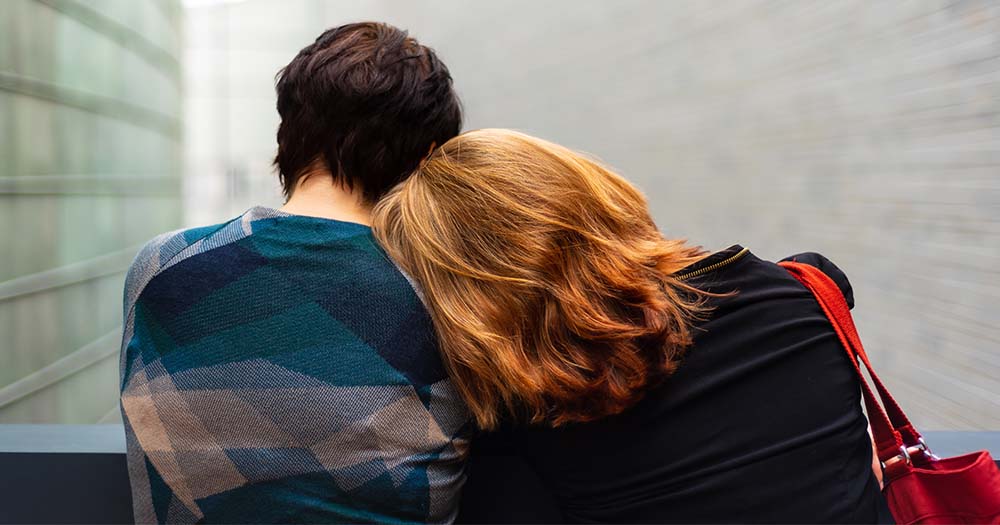On Thursday 14 May, LGBT Ireland released the results of their annual report detailing the situation for LGBT+ folk in this country. The release coincided with ILGA-Europe’s own #RainbowEurope Map and the results of FRA 2020 LGBTI survey on hate crime and discrimination against LGBT+ people.
Paula Fagan, the CEO of LGBT Ireland spoke to GCN about the findings of their annual report and elaborated on the outstanding issues for the LGBT+ community that still need work.
Fagan described, “Our 2019 report shows that stigma and discrimination are still the greatest challenge for those people who contacted us. Many LGBT+ people who contacted us did not feel able to ‘come out’ about their sexual orientation, gender identity or expression, or their sex characteristics, due to fear that they would not be accepted by family, friends, or in their workplaces, schools or local communities or because they had directly experienced or witnessed discrimination.
“The intersectionality within our community, and those on the margins of and invisible in our community; LGBTI+ Travellers and Roma, LGBTI+ seeking international protection, older LGBTI+ people, are particularly vulnerable to stigma and discrimination. And they are only the three cohorts we are currently directly working with. There are others; LGBTI+ people with disabilities; LGBTI+ migrants and younger people, also facing additional challenges.
Today we launched our annual report for 2019, it demonstrates that while Ireland has made huge strides in progressing LGBTI+ rights over the past decade there is still much work left to be done in law and policy reform.
See the full report here: https://t.co/JKIyCMlQbh pic.twitter.com/aM7apRjgdV
— LGBT Ireland (@LGBT_ie) May 14, 2020
“The need for full realisation of LGBTI+ inclusion in our public sector services and sectors emerged through our work in 2019. With the majority of public services still without any LGBTI+ training and education it is leaving them without the knowledge and skills needed to make their services LGBTI+ inclusive.”
With the fifth anniversary of the Marriage Equality referendum approaching, LGBT Ireland reminded that there is still a long way to go for full equality, even though gains had been made. ” We’ve seen the development of two National Government Strategies to advance LGBTI+ rights and inclusion which is very significant. However, much more needs to be done and there is a risk that, post Marriage Equality, Irish society and the political system underestimates the extent of discrimination still experienced by LGBTI+ people.
“It is essential therefore that the two existing National Inclusion plans, are fully resourced and implemented and a strategic approach to LGBTI+ Equality is sustained through the development of further strategies. These strategies are significant because they contain the legal, policy and practice reform that is needed across Government, public services, and within society that can bring about the systems change which is needed in Ireland, if all LGBTI+ people are to be free to be themselves and live without fear of discrimination.”
Our Annual Report shows that work is needed for LGBTI+ people who face additional marginalisation, so that they can experience more visible, more equal lives, free from fear and discrimination.
Read the full report on our website: https://t.co/ggT40pDczZ pic.twitter.com/hMYgUIlycm
— LGBT Ireland (@LGBT_ie) May 17, 2020
Paula shared how the policy responses of LGBT Irelandwould be shaped by the findings of their annual report – “We need to do more to support those who are additionally marginalised. This will include focusing on LGBTI+ Travellers, including developing training and a peer support group and also Traveller awareness within the LGBTI+ community. We will also continue to build and consolidate our support services to ensure we can reach all those who need us.
“In terms of meeting the need for training in public services, we will continue to grow our LGBT Champions Programme to advance inclusion, supports and research on older LGBTI+ people. This training programme is an example of a scaleable model of training, which could also be used in other sectors and settings, if resources were available.
“In terms of legal and policy reform, we will be actively advocating for the development of Hate Crime legislation that is urgently needed to protect our community. We are also committed to ensuring that legal recognition is achieved for all LGBTI+ families and we will be working hard to get the AHR Bill progressed. And we will continue to engage across Government Departments to push for the full implementation of the National LGBTI+ Inclusion Strategy.”
Despite progress in LGBTI+ issues, our annual report shows that law and policy reform is needed to ensure LGBTI+ people can feel safe, protected and welcome. particularly in combating incitement to hatred and hate crimes against LGBTI+ people.
Read here: https://t.co/DNUYRLFWnv pic.twitter.com/R5WWXJcEPw
— LGBT Ireland (@LGBT_ie) May 18, 2020
With the International Day Against Homophobia, Transphobia and Biphobia taking place yesterday, LGBT Ireland spoke about the daily reality for many LGBT+ folk involves “facing down homophobic, transphobic, biphobic commentary or self-censoring in order to avoid starting such comments.”
They encouraged the community “to decide to take a stand against homophobic/transphobic/biphobic remarks wherever they hear them and to stand up for their LGBTI+ friends, family members, colleagues.”
© 2020 GCN (Gay Community News). All rights reserved.
Support GCN
GCN is a free, vital resource for Ireland’s LGBTQ+ community since 1988.
GCN is a trading name of National LGBT Federation CLG, a registered charity - Charity Number: 20034580.
GCN relies on the generous support of the community and allies to sustain the crucial work that we do. Producing GCN is costly, and, in an industry which has been hugely impacted by rising costs, we need your support to help sustain and grow this vital resource.
Supporting GCN for as little as €1.99 per month will help us continue our work as Ireland’s free, independent LGBTQ+ media.

comments. Please sign in to comment.